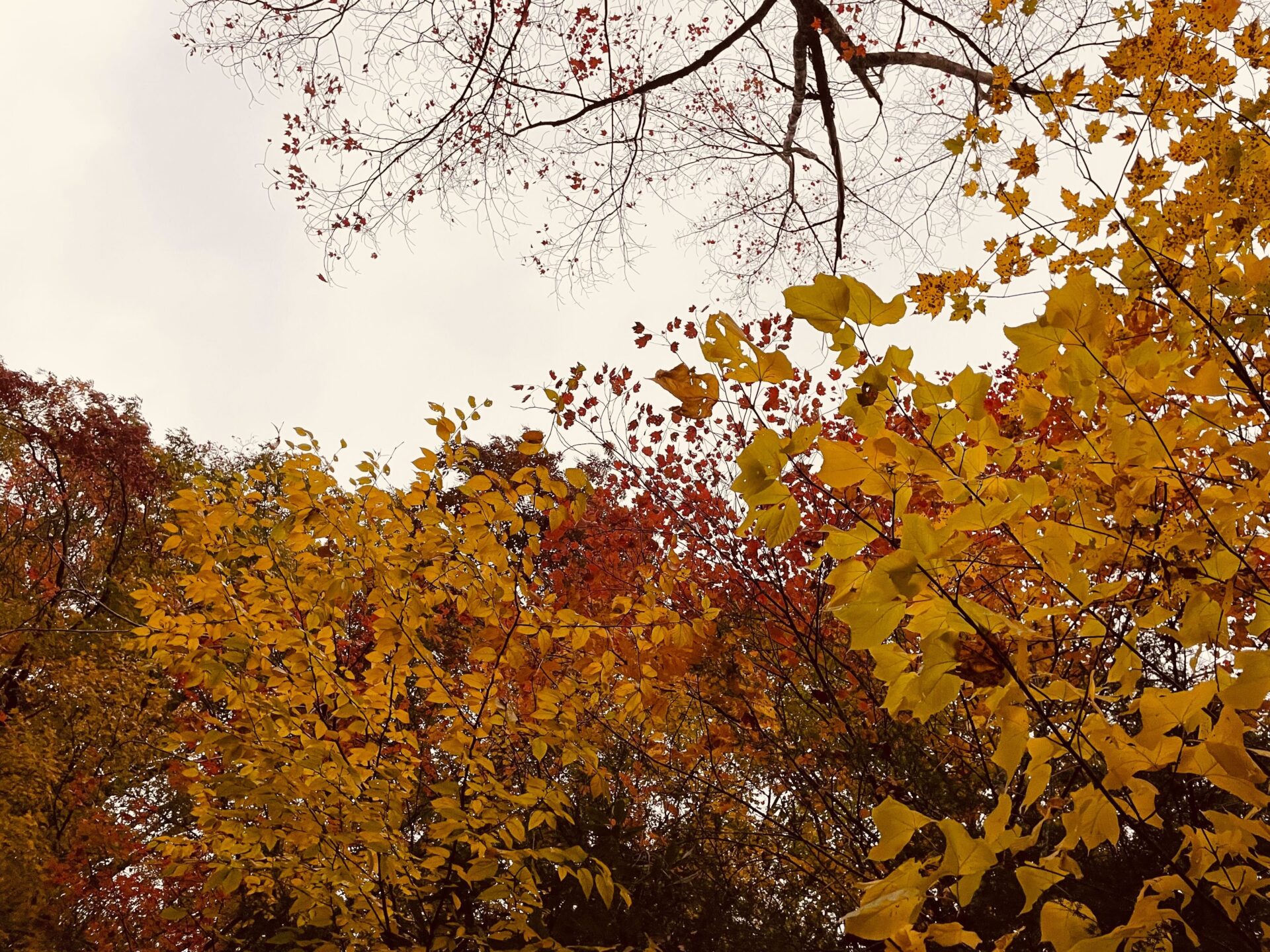After a dry hot summer, the leaves are already beginning to change to their fall form. Despite an expectation of duller colors, New River Gorge National Park Superintendent Eve West said she thinks this will still be a great fall with lots to see and do. She spoke with reporter Briana Heaney.
This interview has been lightly edited for length and clarity.
Heaney: It’s been a very dry summer, the worst drought on record. How will this affect the fall leaves?
West: Well, it’s probably not going to affect them very well. I’ll just be honest. But you know, we hopefully will get some rain between now and when things begin to turn. Of course, things are already kind of starting to turn a little bit. But you know, what typically triggers fall is when you have the longer nights, the shorter days. But, you do have other varying factors, such as moisture and then also temperature. And so moisture has been kind of our limiting factor this time. It’s been hot, too. So I’m not sure we’ll have to kind of see what happens.
Usually when you get your best falls is when you have, like, a warm, wet spring, and you have a really good summer, and then in the fall you get warm, sunny days, and you get those cool, crisp nights. So maybe we’ll get some cool, crisp nights and warm, sunny days in the fall. So that’ll help but, a little bit of moisture would definite8ly help as well.
Heaney: Moisture, even this late, could still be a positive thing?
West: It could help. It’s better to have it early on, but it could still help.
Heaney: So moisture, that’s the factor that we have going against us in this very, very dry summer. What other factors contribute to a good fall turnout? And what are some things that could happen this fall to help the colors last a little longer or shine a little brighter?
West: Well, you know, as long as the fall temperatures, don’t You know, we don’t have some sort of summer time extremes in the fall. You know, we’ve had cooler temperatures late this summer, which has not been a bad thing at all. But if we end up with some nice fall days that are warm and sunny, and we don’t get high winds, that’s the other thing- these high winds, once the leaves start to dry out, they can really knock the leaves off the trees fairly quickly. So, if we get those cool nights, warm, sunny days during the fall, and we get some moisture between now and then and then, we will maybe still have a good fall, we’ll see. I mean, it’s, it could very well be.
Heaney:Yeah, my fingers are crossed, because I love fall here in West Virginia, and so do a lot of people, including people who don’t live here in West Virginia, the fall colors are a big driver of tourism.
West: Exactly,
Heaney: How will some of these lackluster colors, or short lived colors affect how many people come to visit the region and visit the National Park this year?
West: I don’t really think it’ll have a huge impact, because people come. I mean, the fall is a wonderful time of the year here. I think with all the events that we have going on, Bridge Day, all the smaller town festivals and things, the good hiking weather, Gauley season coming on. I think we’ll do just fine.
Heaney: Yeah. I mean, that goes right into my next question for you, which you kind of hit on already. But other than the beautiful fall colors, what are some things happening in and around the park this fall?
West: We actually have one of our biggest events in a park, from the park standpoint, that is our primary event. It’s called Hidden History week, and it’s for the next, really month, throughout the middle part of September and also into October. We do a lot of guided walks. We actually have “Sounds of the Appalachia Music Festival” that’ll be at Grandview the very last weekend of September, on that Saturday, and we have a lot of live music that day featuring bluegrass and some traditional, you know, Appalachian music. So that’s going to be the last weekend of September. And then a lot of our partners are going to be having guided walks and all sorts of things. And of course, you know, there’s other stuff. There’s a ton of stuff that the communities are putting on. As I mentioned, Bridge Day is always the third Saturday in October, and that’s shaping up to be a big event again this year. And then, you know, Gauley seasons going on right now. So we’ve got the Gauleyfest coming up, and that’s in Summersville, and that’s always a big event that pulls in people from, you know, all over the United States.
